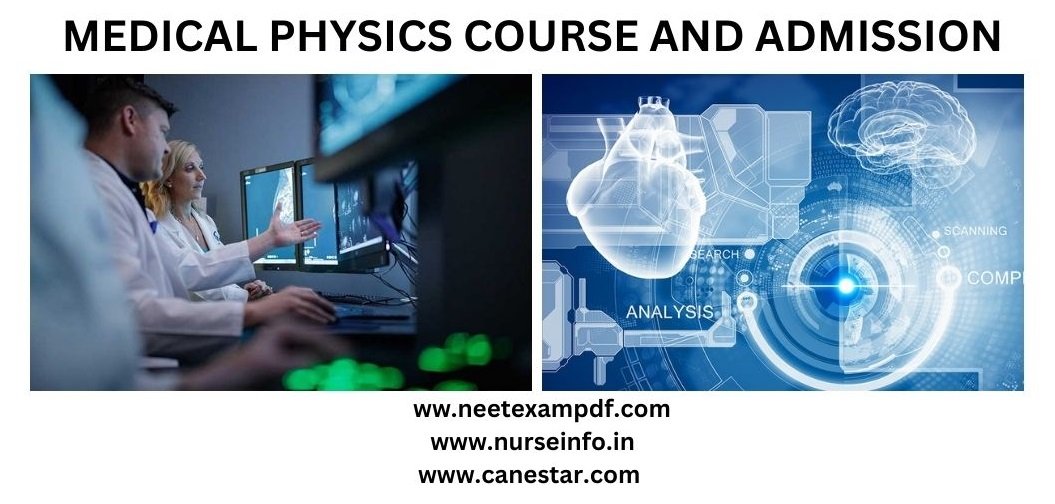Medical physics is an intricate and interdisciplinary field that seamlessly melds the principles of physics with the realities of medicine. As healthcare technology advances, the demand for adept professionals in medical physics has grown exponentially. It is vital for aspiring medical physicists to pursue higher education in institutions that offer comprehensive courses tailored to this unique nexus of science and healthcare. Below, a detailed exploration of universities abroad that embrace this enticing discipline will be presented, illuminating their contributions to the burgeoning field of medical physics.
1. University of Manchester (United Kingdom)
The University of Manchester presents an esteemed MSc in Medical Physics, particularly through its School of Physics and Astronomy. Boasting a rich heritage in scientific education, this university provides an immersive curriculum that includes modules in radiation protection, imaging physics, and radiation therapy. The location in a vibrant metropolitan area further allows students to benefit from collaborations with local hospitals and research institutions, enriching their practical experience.
2. University of Sydney (Australia)
At the University of Sydney, the Master of Medical Physics program is renowned for its robust integration of theoretical knowledge and clinical practice. The unique structure of this program facilitates a thorough understanding of the technical aspects of medical imaging and radiation treatment. Sydney’s diverse cultural milieu serves as a stimulating backdrop for both academic learning and professional networking, leveraging its tie-ups with several leading medical facilities.
3. McGill University (Canada)
Located in Montreal, McGill University offers a Graduate Program in Medical Physics that is characterized by its innovative research initiatives and a strong partnership with McGill University Health Centre. This synergy enables students to engage in cutting-edge medical research while acquiring critical skills in imaging technology and radiation therapy. The lively arts and scientific community in Montreal also serve as a focal point for students seeking interdisciplinary collaboration.
4. University of Alberta (Canada)
The University of Alberta’s Master’s Degree in Medical Physics immerses students in both the theoretical and practical elements of the health sciences. With a curriculum that emphasizes quantitative methods and technological applications, graduates are equipped to tackle real-world problems in radiation therapy and diagnostic imaging. Furthermore, the university’s proximity to multiple health institutions allows for enriching internships and practical training experiences.
5. Radboud University (Netherlands)
Radboud University in Nijmegen features a distinguished Master’s program in Medical Physics within its Faculty of Science. Renowned for its research focus, the program covers a wide array of topics including radiation oncology and magnetic resonance imaging. The collaborative framework within the Nijmegen campus facilitates interdisciplinary research, ensuring that students are at the forefront of innovations in medical physics.
6. University of California, Los Angeles (United States)
The University of California, Los Angeles, offers an MS in Medical Physics that has rapidly gained prominence due to its rigorous scientific training and association with the David Geffen School of Medicine. The program is specifically designed to prepare students for clinical residency programs in medical physics, providing extensive access to clinical settings and research laboratories. This direct exposure is crucial for students aspiring to specialize in this dynamic field.
7. University of Pennsylvania (United States)
The University of Pennsylvania’s Master of Science in Medical Physics program distinguishes itself through its exemplary curriculum and access to leading-edge research facilities. Students benefit from hands-on training in clinical settings alongside experienced professionals. The commitment to interdisciplinary research fosters a nurturing environment for innovation and discovery, reflecting the institution’s dedication to addressing contemporary challenges in the field of medicine.
8. King’s College London (United Kingdom)
King’s College London offers a comprehensive MSc in Medical Physics, renowned for its emphasis on both theoretical and practical learning. The program is closely affiliated with the NHS, providing a distinct opportunity for students to gain practical training in various medical applications. The strong academic and clinical partnerships of King’s College facilitate a dynamic exchange of ideas and expertise, essential for any new advancements.
9. University of Melbourne (Australia)
In Australia, the University of Melbourne offers a well-rounded Master’s program in Physics with a specialization in Medical Physics. The curriculum is designed to cover fundamental concepts and advanced clinical applications. The university’s connections with leading hospitals in Melbourne allow students to undertake extensive clinical placements, enhancing their learning experience.
10. University of Glasgow (United Kingdom)
The University of Glasgow features a vibrant Medical Physics MSc program, which strongly emphasizes practical clinical training alongside in-depth theoretical studies. The comprehensive curriculum prepares graduates for various roles within healthcare, ensuring they are well-equipped to navigate the complex medical landscape. Glasgow’s storied academic history and progressive research environment create a fertile ground for future innovations in the field.
In summary, the pursuit of a degree in medical physics provides an intriguing path for graduates eager to engage with one of the most impactful sectors in modern society—healthcare. Each of the depicted institutions offers a unique blend of academic rigor and practical training, ensuring that students are well-prepared to embark on their professional journeys. The growing intersection of physics and medicine continues to captivate burgeoning scientists and healthcare providers alike, heralding a bright future for medical physics as an essential component of contemporary health solutions.












